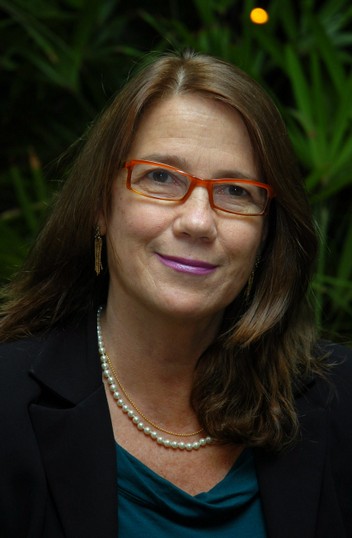Yvonne Maggie (1940- )

The elegant lady with this exotic name was someone with whom I worked closely on a significant affirmative action program at the Federal University of Rio.
When I was a consultant for the Rio office at the Ford Foundation, it, sitting on a pot of money in New York, was trying to think of constructive ways to spend it in the “developing world.” Foundation officers knew that racial discrimination was an unacknowledged problem in Brazil.
This is all very ironical, because Henry Ford, the source of their money, was a notorious anti-Semite and reactionary. Never mind, time has a way of washing these sins away.
In any case, Yvonne was also troubled about the state of race relations in her country. She knew, from her teaching position at the university, how difficult it was for her students to concentrate on their studies because they, coming from poor families, had to work part-time jobs. She also knew from her anthropological research that their color was an additional burden.
So, she hooked up with a Brazilian foundation to start a scholarship fund to help finance her students. Here’s where Henry Ford came in. The Rio office of this money pot thought it was a good idea to join in. So they hired (strictly after hours) me, the itinerant historian, as the contact man. After all, I was born in Jim Crow land, although my suburban Cincinnati high school was integrated even in the 1940’s.
The idea of affirmative action was highly controversial in the Brazil of my day. Both the left and the right attacked it as a dangerous “import” from Yankeeland. As a gringo in Rio I was also regarded with suspicion. What was at work was the dominant (quasi white) elite who thought Brazil, because of its special history, had escaped the curse of twentieth-century racism.
Not so, as many perceptive researchers and journalists had been arguing way before I arrived in Brazil. As I completed my studies, well-documented monographs were laying out the facts, based on census data and field research. Nevertheless, I was rebuked, for example, for my pro-affirmative action views by the knowledgeable British-born anthropologist and Brazil expert, Peter Fry. I still think I was right.
Further Readings
Maggie, Yvonne. Guerra de orixá: um estudo de ritual e conflito. Rio de Janeiro: Zahar, 1975.
Maggie, Yvonne. Medo do feitiço: relações entre magia e poder no Brasil. Rio de Janeiro: Arquivo Nacional, Orgão do Ministério da Justiça, 1992.
Maggie, Yvonne. Raça como retórica: a construção da diferença. Rio de Janeiro: Civilização Brasileira, 2002.
Yvonne Maggie was born in the city of Rio de Janeiro. Since 1969, she has taught at the Federal University of Rio de Janeiro as professor of cultural anthropology at the Institute of Philosophy and Social Sciences. In 1992, she accepted the Érico Vannucci Mendes Award for her anthropological research. A year later, she received a prize from the Ministry of Justice’s National Archive of Research. In 2008, FAPERJ, an organization devoted to science and technology in Rio de Janeiro, awarded Maggie the National Order of Scientific Merit. She authors a blog called “A vida como ela parece ser” for Globo.com.

